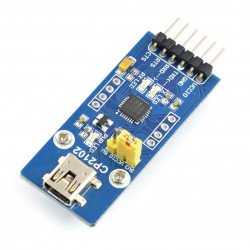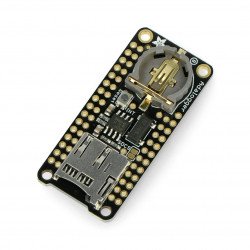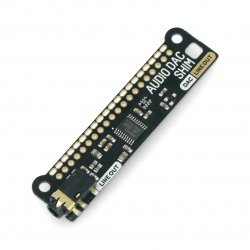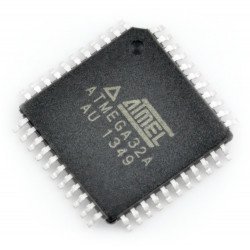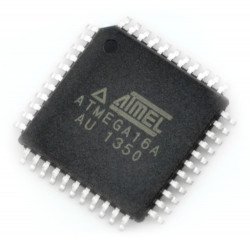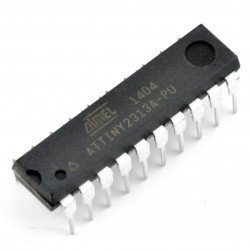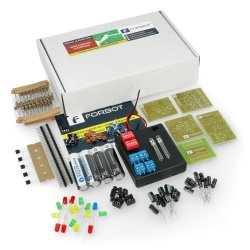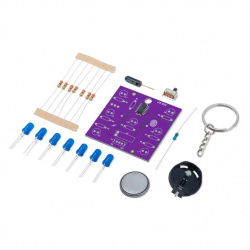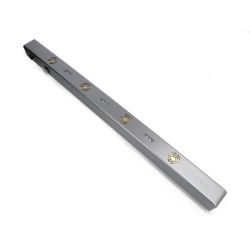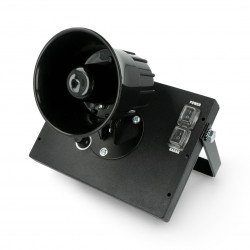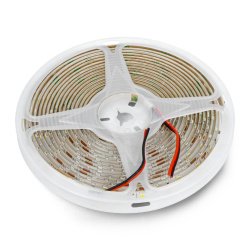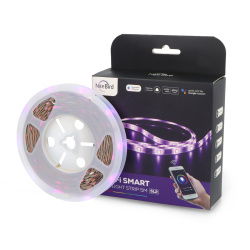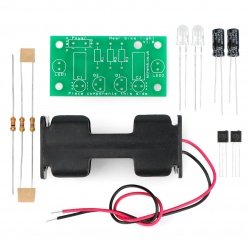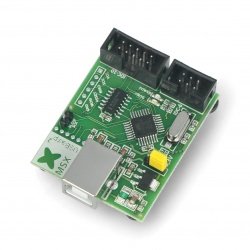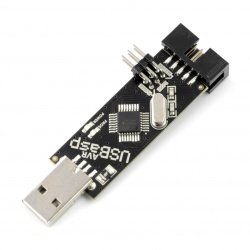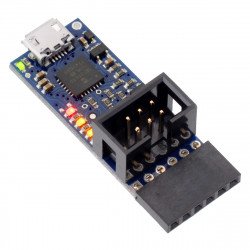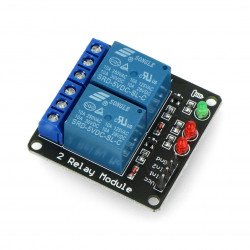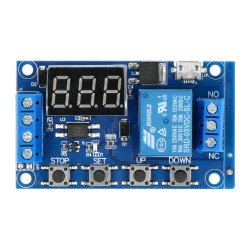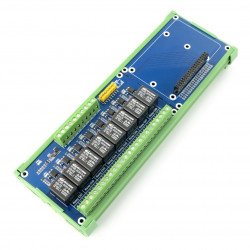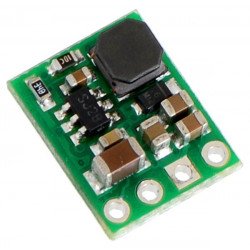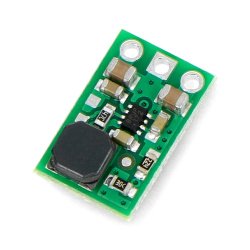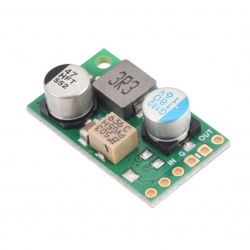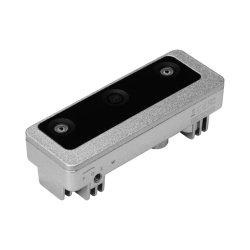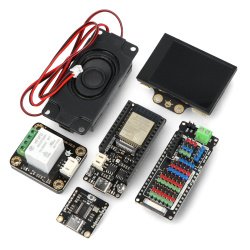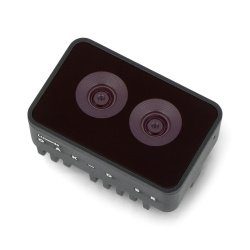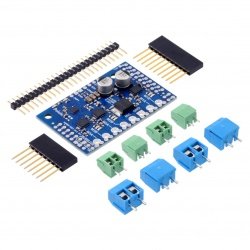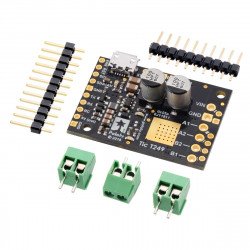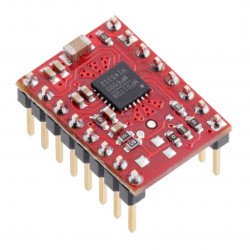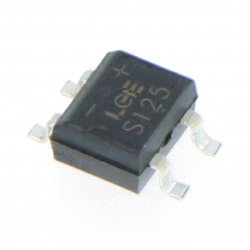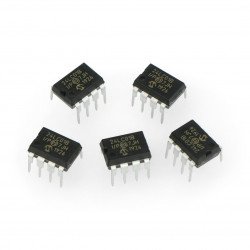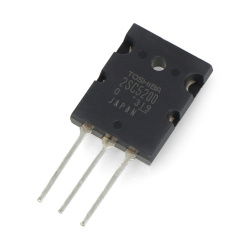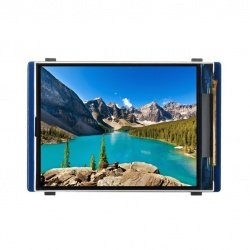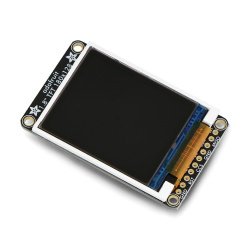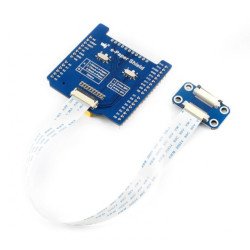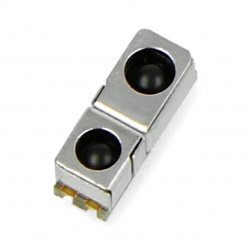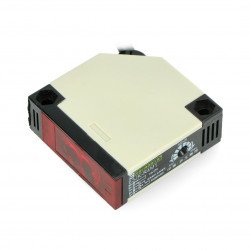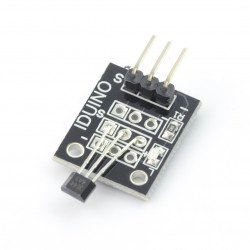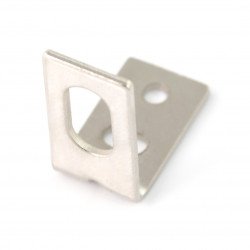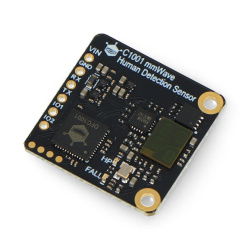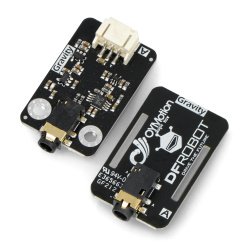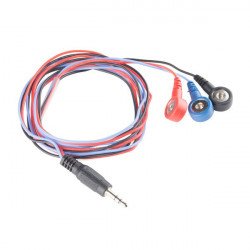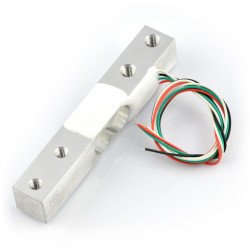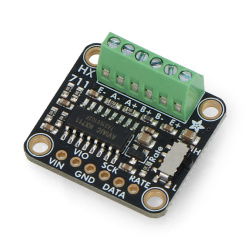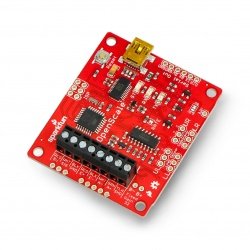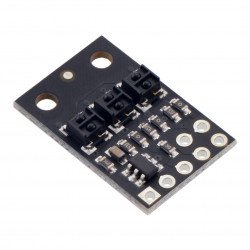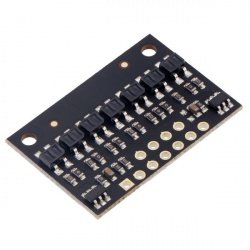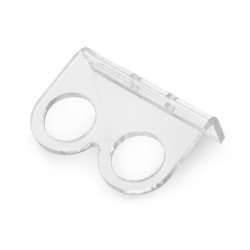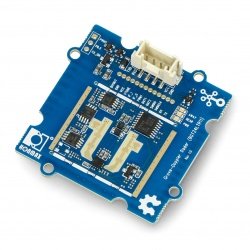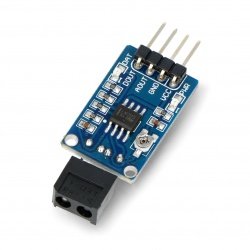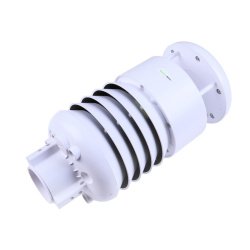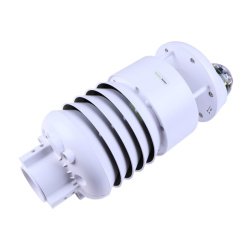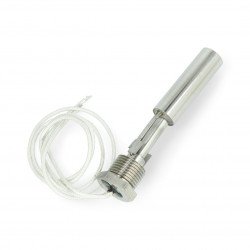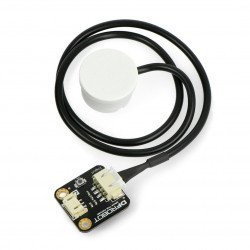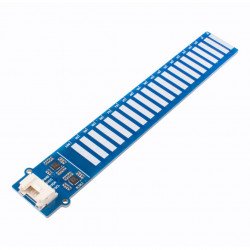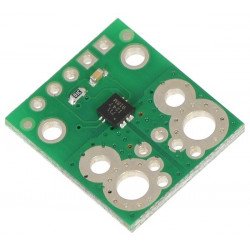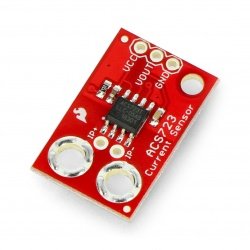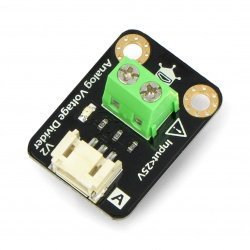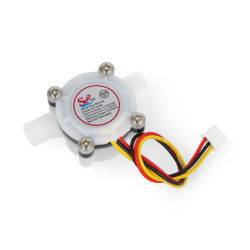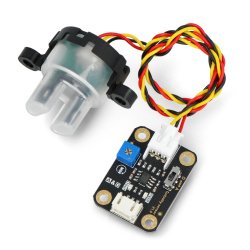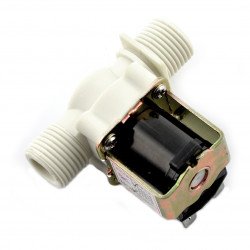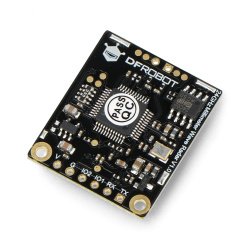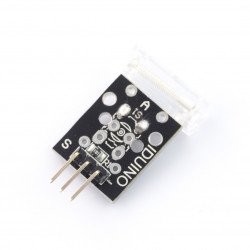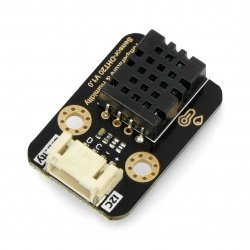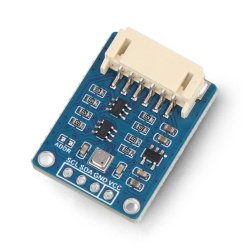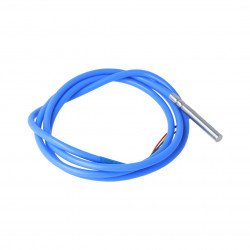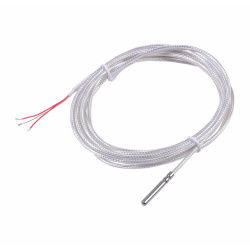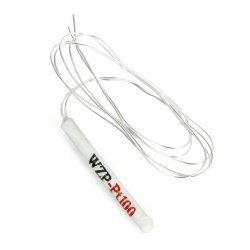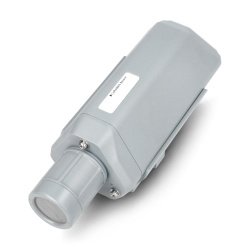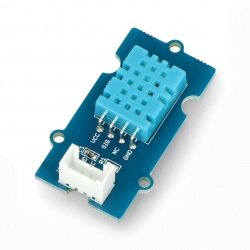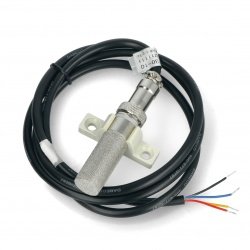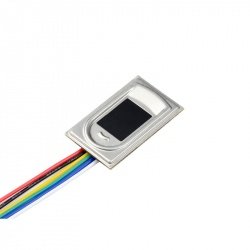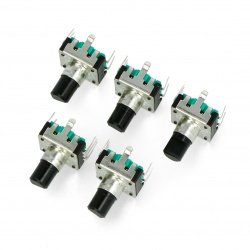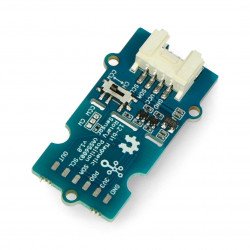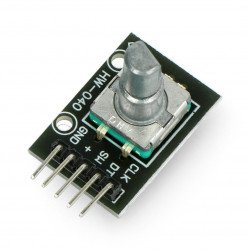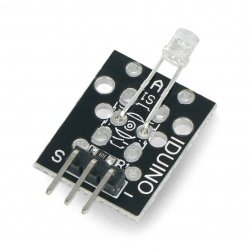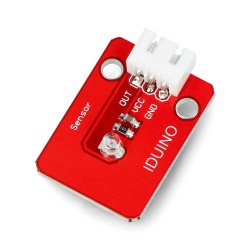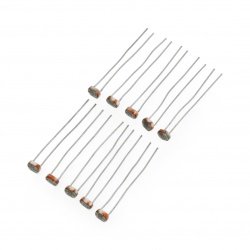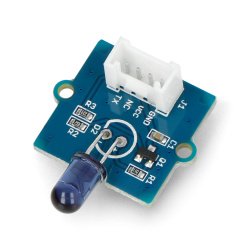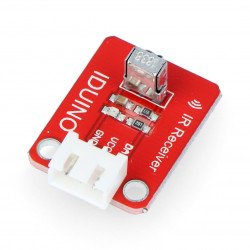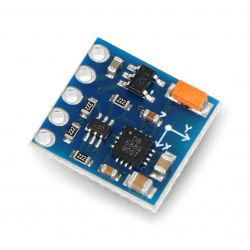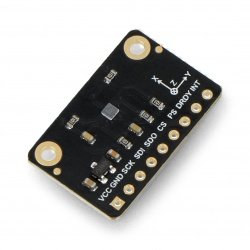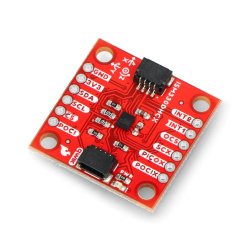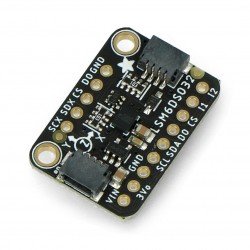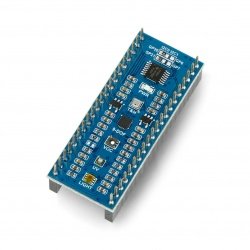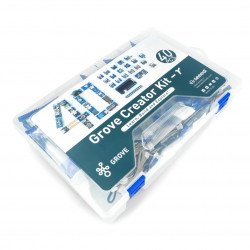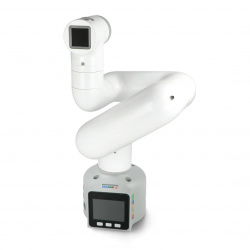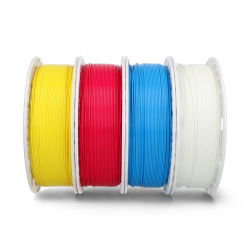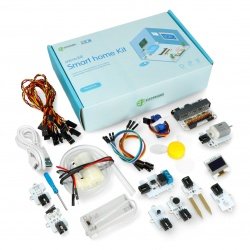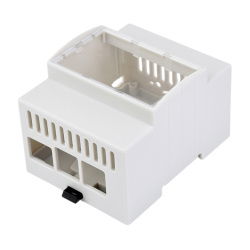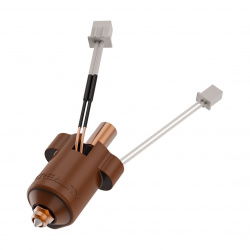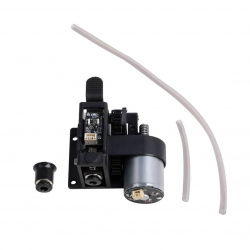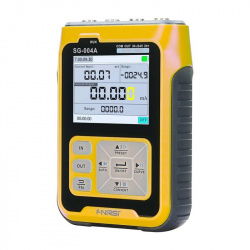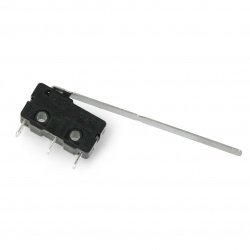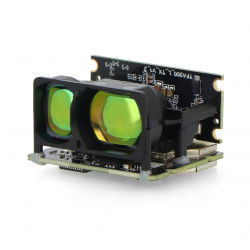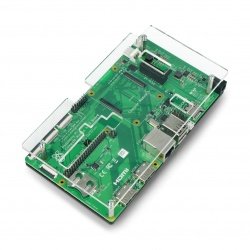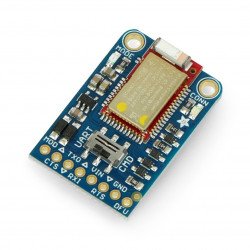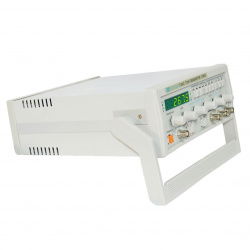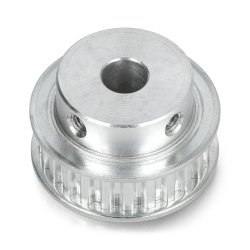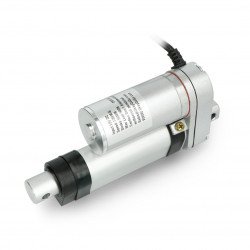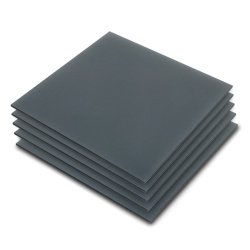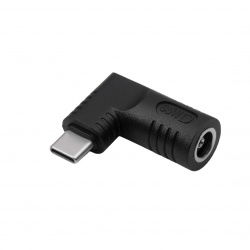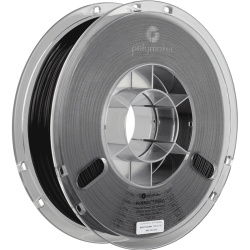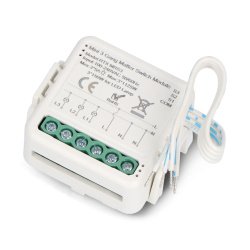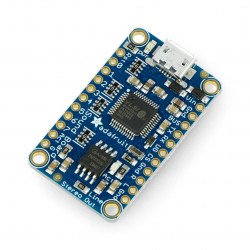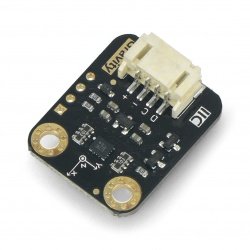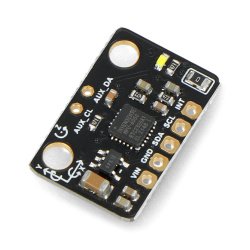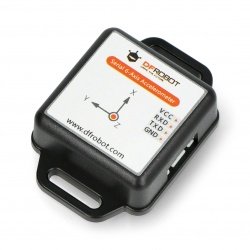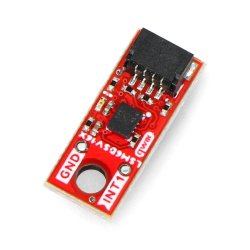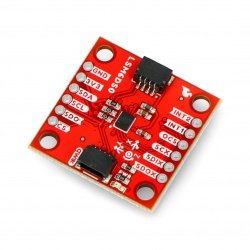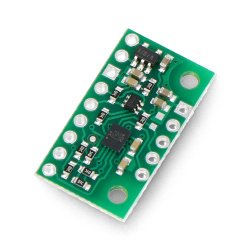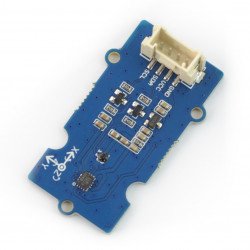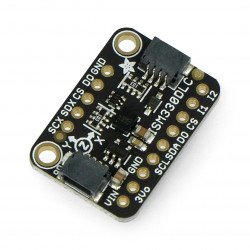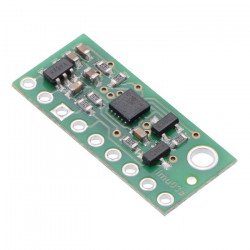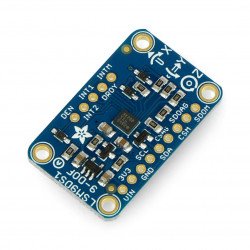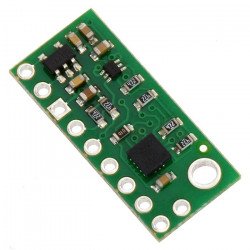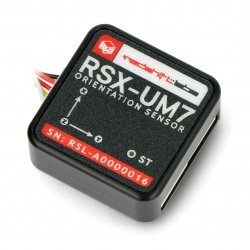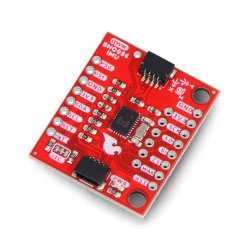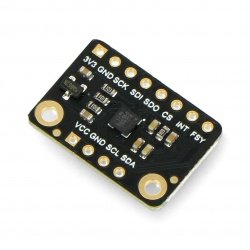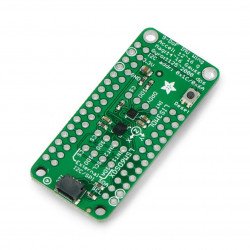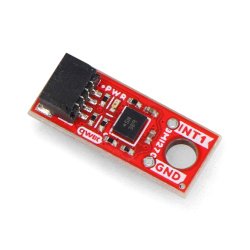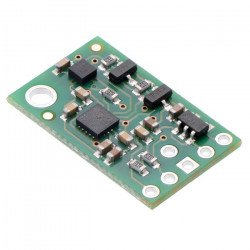Gyroscope - To determine the coordinates and orientation of an object, sensing devices are often used. Such devices include gyroscopes , accelerometers and magnetometers . Despite a similar area of application, each of them measures different quantities. By combining them into one device, you get a powerful tool that helps determine the location and direction of movement of, for example, a drone or a robot. A properly designed electronic system that also implements these functions in your project can be found in many variants in the Botland store offer.
Gyros
Gravity - BMI160 6DoF IMU - 3-axis accelerometer and gyroscope - DFRobot SEN0250
A 6-axis inertial motion sensor featuring the Bosch BMI160 MEMS chip. The module integrates a 16-bit 3-axis accelerometer and a 3-axis gyroscope . It is used to measure...MPU-6050 3-axis accelerometer and I2C gyroscope - DFRobot module
Sensor for measuring acceleration and angular velocity in three axes. It is a combination of 3-axis accelerometer and gyroscope. It is characterized by simple operation, it...6-axis motion sensor - accelerometer and gyroscope - DFRobot SEN0386
Powerful 6-axis sensor combines accelerometer and gyroscope. Allows you to determine the position of an object in space , measure the acceleration and angular velocity....SparkFun Micro 6DoF IMU Breakout - LSM6DSV16X - Qwiic - SparkFun SEN-21336
SparkFun Micro 6DoF IMU Breakout is a compact development module based on the LSM6DSV16X chip. It is a small device that offers accelerometer and gyroscope functions with...Grove - 6-axis accelerometer and gyroscope LSM6DS3 - Seeedstudio 105020012
The module is equipped with a 6-axis accelerometer and a gyroscope based on the LSM6DS3 system with a built-in power regulator. It allows to measure 6 sizes: acceleration X,...LSM6DSO - 3-axis accelerometer and I2C/SPI gyroscope - SparkFun SEN-18020
PCB with 6DoF LSM6DSO chip containing accelerometer and gyroscope along with 9 kB FIFO buffer and embedded processing interrupt functions. The device can detect shock, roll,...I2C Environmental Sensor - for Raspberry Pi Pico - Waveshare 20232
A module designed for the Raspberry Pi Pico equipped with a range of useful environmental sensors . Manufactured by Waveshare, it includes temperature, humidity, air...LSM6DSO - 3-axis accelerometer and I2C/I3C/SPI gyroscope - Pololu 2798
The LSMDDSO sensor from Pololu is the successor to the older LSM6DS33 module and is a combination of a 3-axis accelerometer and a gyroscope. It allows you to measure 6...Grove - 3-axis accelerometer, gyroscope and magnetometer - ICM20600 + AK09918 - I2C
The module from Grove series, designed for 9-deegre inertial navigation (IMU). It acts as a gyroscope, accelerometer and electronic compass. It allows you to measure angular...ISM330DHCX 6DoF IMU - 3-axis accelerometer and gyroscope - Adafruit 4502
The DoF ISM330DHCX sensor is equipped with a 3-axis accelerometer and a 3-axis gyroscope. It measures linear acceleration within ± 2 / ± 4 / ± 8 / ± 16 g and angular velocity...LSM6DS33 - 3-axis accelerometer and I2C/SPI gyroscope - Pololu 2736
Sensor allows you to measure 6 variables: acceleration X, Y, Z and angular velocity X, Y, Z. It is a combination of 3-axis accelerometer and gyroscope. It communicates via the...9-DOF Accel/Mag/Gyro+Temp Breakout Board - LSM9DS1 - Adafruit 3387
The sensor is a combination of 3-axis digital gyroscope, accelerometer and compass. It allows you to measure acceleration, magnetic field and angular velocity in the...LSM6DSO32 6DoF IMU - 3-axis accelerometer and gyroscope - Adafruit 4692
The 6DoF LSM6DSO32 is a module of the Adafruit 3-axis accelerometer and 3-axis gyroscope . It is used to measure linear acceleration within ± 4 / ± 8 / ± 16 / ± 32...L3GD20H 3-axis, digital I2C SPI gyroscope - Pololu 2129
Sensor to measure the angular velocity in three axes. It works in the range of up to ±240 °/s, ±500 °/s or ±2000 °/sec. It communicates via the I2C or SPI bus, it has the...9DoF IMU Breakout - ISM330DHCX, MMC5983MA - Qwiic - SparkFun SEN-19895
SparkFun Qwiic 9DoF IMU Breakout sensor combines a high-performance digital ISM330DHCX accelerometer, a gyroscope and a highly sensitive three-axis magnetometer MMC5983MA ....BNO085 9-DOF IMU Fusion Breakout - 3-axis accelerometer, magnetometer and gyroscope - Adafruit 4754
Sensor based on the BNO085 system equipped with an accelerometer, magnetometer and gyroscope. Allows you to measure acceleration, spatial orientation, and where the strongest...SparkFun 6DoF IMU Breakout - BMI270 - 3-osiowy akcelerometr i żyroskop - Qwiic - SparkFun SEN-22397
SparkFun 6DoF IMU Breakout is an inertial sensor module with the BMI270 chip. It has a 3-axis accelerometer and gyroscope that enable precise tracking of movement and...VR IMU Breakout - VR module with IMU sensor - BNO086 - Qwiic - SparkFun SEN-22857
VR IMU Breakout from SparkFun is a module with an IMU sensor intended for use in the field of virtual reality (VR). It is equipped with an efficient BNO086 chip from...Fermion - accelerometer and gyroscope ICG-20660L - I2C/SPI - DFRobot SEN0443
The module features the ICG-20660L high-precision 6-axis IMU , which integrates a 3-axis accelerometer (± 2 / 4 / 8 / 16 g) and 3-axis gyroscope (± 125 / 250 / 500 dps),...MinIMU-9 v6 - module with accelerometer and magnetometer - LSM6DSO and LIS3MDL - Pololu 2862
MinIMU-9 v6 is an measurement unit (IMU) that includes a 3-axis gyroscope , an LSM6DSO accelerometer and a LIS3MDL magnetometer. All these elements are placed on a compact...SparkFun Micro 6DoF IMU - BMI270 - Qwiic - SparkFun SEN-22398
SparkFun Micro 6DoF IMU Breakout is a compact board equipped with an accelerometer and gyroscope that are used to precisely track movement and orientation. The module...MinIMU-9 v5 9DOF - accelerometer, gyroscope and magnetometer I2C - Pololu 2738
The sensor allows to measure 9 sizes: acceleration X, Y, Z magnetic field X, Y, Z and angular velocity X, Y, Z. It is a combination of 3-axis accelerometer and gyroscope...See also
- RPM sensors
- Twilight sensors
- Tilt sensors
- Accelerometers
- Inductive sensors
- Hall effect sensors
- Oxygen sensors
- Optical sensors
- Resistance sensors
- Door sensors
- Piezoelectric sensors
- Alarm sensors
- 9DoF IMU sensors
- Pressure sensors
- Air quality sensors
- Sound sensors
- Gesture sensors
- Gas sensors
- Limit switches
- Sensors of light and color
- Magnetic sensors
- Medical sensors
- Pressure sensors
- Sensors odbiciowe
- Distance sensors
- Inductive contactless sensors
- Weather sensors
- Liquid level sensors
- Current sensors
- Flow sensors
- Motion sensors
- Temperature sensors
- PT100 temperature probes
- Humidity sensors
- Fingerprint readers
- Encoders
- Photoresistors
- Phototransistors
- IR receivers
- Magnetometers
- Sensor sets
- Grove modules
- Gravity modules
Gyroscope - Helpful navigation devices
Gyroscopes are devices whose task is to measure and maintain the angular position of an object. Gyroscopes are most often used in objects that do not usually rotate very quickly around their axis. Aircraft such as planes and helicopters typically rotate several degrees around their axis, such as during a turning maneuver or altitude change (excluding aerobatic flights). By detecting these small deviations, gyroscopes help stabilize the aircraft's flight, but changes in the aircraft's acceleration or linear speed do not affect the measurement of the aircraft's angular deviation. Gyroscopes built in MEMS technology enable measurement of angular velocity and take up little space. Such gyroscopes can be used to determine the orientation of an object and are successfully used in autonomous navigation systems in land and air traffic, including in extraterrestrial space. What's the easiest way to use a gyroscope? Imagine a bicycle wheel rotating at one revolution per second. This is equivalent to saying that it rotates at an angular speed of 360 degrees per second. How to check the direction of wheel rotation by measurement? Using a MEMS gyroscope enabling three-dimensional measurement of the rotation angle - around the X, Y and Z axes. You can also find gyroscopes enabling measurement in one or two axes, but three-axis gyroscopes in the form of a small board with electronics turned out to be a solution characterized by a low price and at the same time very popular among DIY enthusiasts. A gyroscope is equipment that every DIY enthusiast and electronics beginner should be familiar with.
MEMS gyroscopes - small and practical
If you want to develop your robot design in terms of its balance stability when stopping, moving or standing still on an uneven surface, an excellent solution will be to use a small MEMS gyroscope which, by measuring the angular deviation of the robot from the equilibrium position, will send information to Arduino, which will control appropriate motors and servomechanisms, will give the robot the right position, preventing it from unintentionally tipping over. How does a MEMS gyroscope work? The sensor built into these devices has dimensions not exceeding the diameter of a human hair and works based on the phenomenon of mechanical resonance. When the gyroscope is rotated, the MEMS sensor converts this movement into a very low voltage signal, proportional to the rotation angle. Then, this signal is amplified and transmitted to the microcontroller, where the program makes further decisions depending on the read voltage value.
Accelerometer - easy measurement of acceleration
Accelerometers are devices whose task is to measure acceleration - a quantity that describes how quickly an object's speed changes over time. Accelerometers are helpful tools in measurement systems for detecting vibrations of the tested object and in navigation systems. The accelerometer detects the static and dynamic effects of acceleration. Static forces include gravity, and dynamic forces include vibration and displacement. Accelerometers can measure acceleration in one, two, or three axes of a coordinate system, but as with gyroscopes, the three-axis solution is superior. The structure of a typical accelerometer includes microscopic electrodes forming a capacitor suspended on springs. Under the influence of acceleration, the electrodes move relative to each other, changing the capacitance between them - the speed of these changes makes it possible to determine the acceleration of the object on which the accelerometer works. There are also piezoelectric accelerometers in which a suitable material, under the influence of mechanical influence, generates an electric charge on its surface - this phenomenon is used, among others, when performing seismic measurements.
Magnetometer - designed to work with a gyroscope and accelerometer
Among the MEMS sensors offered by the Botland store, you will find devices with a built-in gyroscope, accelerometer, and magnetometer - a device used to measure the magnetic field intensity, most often based on the Hall effect or magnetoresistance phenomenon. In a Hall magnetometer, if we connect a voltage source to a metal plate, we cause a current to flow between the two surfaces of the plate. When we bring a source of magnetic field (e.g. a magnet) close to the powered plate, we distort the electron flow path on the plate's surface. Then, one side of the plate will be occupied by electrons and the other by protons. After connecting a voltmeter between both surfaces of the board, we will be able to read the voltage, the value of which depends on the intensity of the magnetic field and its direction of influence in space. However, the magnetoresistive concept of a magnetometer uses materials sensitive to a magnetic field - an iron-nickel alloy is often found. Such materials change their resistance when exposed to a magnetic field. The MEMS sensors available in our offer are also equipped with an I2C interface, thanks to which you can easily connect your gyroscope to work with e.g. Arduino or Raspberry Pi.
Gyroscopes - FAQ
Gyroscopic sensors used in determining coordinates and orientation, also known as angular velocity sensors, are devices that detect angular velocity. Simply put, angular velocity is the change in the angle of rotation per unit of time, usually expressed in degrees per second.
Gyroscopes are used in vehicle navigation systems, electronic vehicle stability control systems, motion sensors in mobile games, camera vibration detection systems in digital cameras, radio-controlled helicopters and in broadly understood robotics and mechanics .






















































































